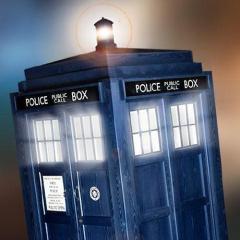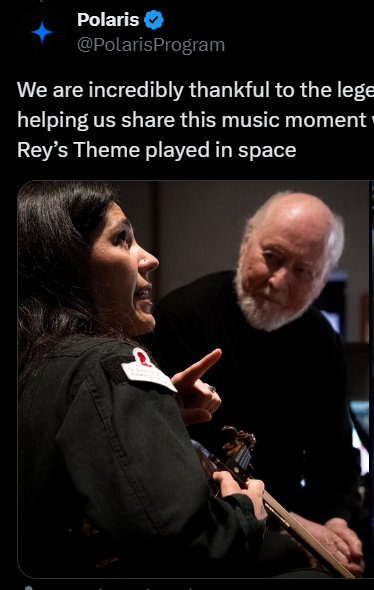-
Posts
3,606 -
Joined
-
Days Won
19
Sunshine Reger last won the day on October 12 2021
Sunshine Reger had the most liked content!
Profile
-
Title (custom text underneath your username)
Williamsian
Recent Profile Visitors
9,630 profile views
-
 Sunshine Reger reacted to a post in a topic:
Academy of Scoring Arts talk - Raiders of the Lost Ark Score Study Part I
Sunshine Reger reacted to a post in a topic:
Academy of Scoring Arts talk - Raiders of the Lost Ark Score Study Part I
-
 Sunshine Reger reacted to a post in a topic:
Treasure Trackers - Classic Adventure Feature Score with 90-piece Orchestra *Update: Score Sheet added!
Sunshine Reger reacted to a post in a topic:
Treasure Trackers - Classic Adventure Feature Score with 90-piece Orchestra *Update: Score Sheet added!
-
 RobinHoffmann reacted to a post in a topic:
Treasure Trackers - Classic Adventure Feature Score with 90-piece Orchestra *Update: Score Sheet added!
RobinHoffmann reacted to a post in a topic:
Treasure Trackers - Classic Adventure Feature Score with 90-piece Orchestra *Update: Score Sheet added!
-
 karelm reacted to a post in a topic:
Interview with Astronaut, Violinist, John Williams fan Sarah Gillis
karelm reacted to a post in a topic:
Interview with Astronaut, Violinist, John Williams fan Sarah Gillis
-
 Sunshine Reger reacted to a post in a topic:
Interview with Astronaut, Violinist, John Williams fan Sarah Gillis
Sunshine Reger reacted to a post in a topic:
Interview with Astronaut, Violinist, John Williams fan Sarah Gillis
-
 Jay reacted to a post in a topic:
Interview with Astronaut, Violinist, John Williams fan Sarah Gillis
Jay reacted to a post in a topic:
Interview with Astronaut, Violinist, John Williams fan Sarah Gillis
-
 Sunshine Reger reacted to a post in a topic:
Interview with Astronaut, Violinist, John Williams fan Sarah Gillis
Sunshine Reger reacted to a post in a topic:
Interview with Astronaut, Violinist, John Williams fan Sarah Gillis
-
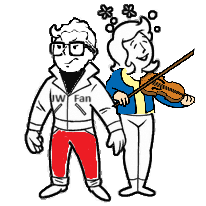
Interview with Astronaut, Violinist, John Williams fan Sarah Gillis
Sunshine Reger replied to karelm's topic in JOHN WILLIAMS
"Hello Anna-Sophie, here is John, John Williams. Listen, Anna-Sophie, SpaceX is sending a young violinist the furthest from Earth any human being has been since Apollo 17 in 1972. The young lady wants to play an arrangement I wrote for you back then..." Imagine getting a call like that -
 Sunshine Reger reacted to a post in a topic:
Academy of Scoring Arts talk - Raiders of the Lost Ark Score Study Part I
Sunshine Reger reacted to a post in a topic:
Academy of Scoring Arts talk - Raiders of the Lost Ark Score Study Part I
-
 igger6 reacted to a post in a topic:
NEW! Dinosaur Expansion from Intrada September 17th, 2024!
igger6 reacted to a post in a topic:
NEW! Dinosaur Expansion from Intrada September 17th, 2024!
-
 Sunshine Reger reacted to a post in a topic:
What is your favorite way to score study Williams' music?
Sunshine Reger reacted to a post in a topic:
What is your favorite way to score study Williams' music?
-
 Sunshine Reger reacted to a post in a topic:
Conrad Pope on The Phantom Menace's post-production score editing
Sunshine Reger reacted to a post in a topic:
Conrad Pope on The Phantom Menace's post-production score editing
-
 Sunshine Reger reacted to a post in a topic:
"John Williams: Adventures on Earth" - Biography by Tim Greiving
Sunshine Reger reacted to a post in a topic:
"John Williams: Adventures on Earth" - Biography by Tim Greiving
-
 Sunshine Reger reacted to a post in a topic:
"John Williams: Adventures on Earth" - Biography by Tim Greiving
Sunshine Reger reacted to a post in a topic:
"John Williams: Adventures on Earth" - Biography by Tim Greiving
-
 Sunshine Reger reacted to a post in a topic:
Help
Sunshine Reger reacted to a post in a topic:
Help
-
 Pieter Boelen reacted to a post in a topic:
John Williams music played in space by astronaut Sarah Gillis and SpaceX Polaris Dawn!
Pieter Boelen reacted to a post in a topic:
John Williams music played in space by astronaut Sarah Gillis and SpaceX Polaris Dawn!
-
 artus_grayboot reacted to a post in a topic:
Danny Elfman's "Batman" (1989) influenced by Gottfried Huppertz's "Die Nibelungen" (1924)?
artus_grayboot reacted to a post in a topic:
Danny Elfman's "Batman" (1989) influenced by Gottfried Huppertz's "Die Nibelungen" (1924)?
-
 enderdrag64 reacted to a post in a topic:
John Williams music played in space by astronaut Sarah Gillis and SpaceX Polaris Dawn!
enderdrag64 reacted to a post in a topic:
John Williams music played in space by astronaut Sarah Gillis and SpaceX Polaris Dawn!
-
 Muad'Dib reacted to a post in a topic:
John Williams music played in space by astronaut Sarah Gillis and SpaceX Polaris Dawn!
Muad'Dib reacted to a post in a topic:
John Williams music played in space by astronaut Sarah Gillis and SpaceX Polaris Dawn!
-
 Loert reacted to a post in a topic:
John Williams music played in space by astronaut Sarah Gillis and SpaceX Polaris Dawn!
Loert reacted to a post in a topic:
John Williams music played in space by astronaut Sarah Gillis and SpaceX Polaris Dawn!
-
 Jay reacted to a post in a topic:
John Williams music played in space by astronaut Sarah Gillis and SpaceX Polaris Dawn!
Jay reacted to a post in a topic:
John Williams music played in space by astronaut Sarah Gillis and SpaceX Polaris Dawn!
-
Awesome how Williams's work is not some fossil music in this context. Rey's Theme, composed in 2015, just 9 years ago, is a mainstream space-themed piece contemporary to the SpaceX rockets and inspiring to the same young generation(s). The same Williams once listened to WWII broadcasts on the radio.
-
I had the pleasure of hearing most of their season just a few years back. Their playing is energetic, precise, and charismatic, reflecting their regular chamber and opera practice. The Staatskapelle reminds me of a warmer albeit a bit more individualistic, and with less time for drills - less cohesive - George Szell orchestra when they are at their best. Them 28 years ago: . Them nowadays: . .
-

NEW! Dinosaur Expansion from Intrada September 17th, 2024!
Sunshine Reger replied to Brando's topic in General Discussion
10 reasons to love this score: 1. best mickeymousing job ever done in a Disney film 2. best JW-style love theme not by JW 3. Courtship 4. Breakout 5. Across the Desert 6. the damn Egg Travels 7. main / hope theme 8. herd theme 9. asteroid motif 10. The slapping end credits suite I have probably written this many times before, but the film is my only childhood favourite that stood the test of time for me, thanks to its premise, visuals, and music. A visceral post-apocalyptic tale dedicated to highlighting compassion as a risky but worthwhile aspect of leadership, filled with beautiful natural vistas and uncommonly noble music? How many films for kids are there with this specific lesson and panache? Sure, it's probably a predictable pile of garbage for the unfriendly neighbourhood nihilist, and a ticket price loss for that specific cohort of people misled 24 years ago by a trailer to expect an Animal Planet documentary. But I think it is actually not too shabby for what might have been the most expensive film per minute ever at the time. It's a picture that a film megacorp of today would not have the brains (or cojones) to make. An expansion of the score was long overdue. As the director said (paraphrasing) "James probably should have gotten a writing credit". -

Favorite short musical moments in Williams scores?
Sunshine Reger replied to Balahkay's topic in JOHN WILLIAMS
this brief sacrificial chant in Incident at Isla Nublar (2:02+) -

John Williams's influence on videogame music
Sunshine Reger replied to Sunshine Reger's topic in JOHN WILLIAMS
@Marian Schedenig thanks for the detailed and extensive post. I am not really familiar with games from the previous century (the only game older than 2002 or so that I played was Panzer General...) so thanks for filling the gap. The kind of cultural angle you are taking is probably worthy of a book in itself. So you are saying, that Williams led to a rosier trajectory for Spielberg's choice of film projects AND saved the LEGO brand? I am beginning to think that if Williams was never born, Biff Tannen would be running the Hill Valley. -
I don't know to what extent this topic has been researched in the academic world, but I suspect that the more ephemereal nature of game scores (less likely to be released as standalones, nevermind complete, re-recorded, or picked-up by niche labels) means that nobody except certain generations that have actually played the respective games will ever realize the extent of Williams's influence on the genre. To establish a common ground for the discussion, let's start with the fairly established view that Williams's extraordinary commitment to the quality of his film scores, particularily in the 1975-2008-ish period, made a difference in the overall attractiveness of orchestra-based music in Hollywood film productions. I am deliberately saying "Hollywood film productions", because in the 20th century the UK and USSR for instance were two effectively independent centres and bastions the use of Romantic orchestral music in film. In the discussion of Williams's influence, I would like to make a distinction between direct (genre-style) influence, such as Star Wars => Star Trek: The Motion Picture / Stargate, or Indiana Jones => Mummy Trilogy, or Return of the Jedi => Predator, and indirect influence (a general attractiveness of a large orchestra and the Romantic idiom). I allow myself to add a hopefully uncontroversial hypothesis that Williams also set a bar very high for hummable themes and motifs and at the same time did show the industry professionals many effective ways of creating those. There would probably be no History of the Ring that we know without the E.T. piccolo opener, nor Lighting of the Beacons without the Asteroid Field. Now let's look at the nascent 'cinematic' games. For reasons of technological limitations in digital data storage in general and gaming hardware specifically, orchestral music in videogames only became viable in the 1990s. The feasibility of making games 'cinematic' through graphic design, cutscenes, dialogues + score, and the way games were structured, was also developed in that time. Steven Spielberg has been involved in the game adaptations of his film projects since the 1982 Atari game based on E.T.. He went as far as to become a game producer over a decade later, being involved in scripts and IIRC picking the young Michael Giacchino to first score a game based on Jurassic Park and then a Medal of Honor game that followed in the footsteps of Saving Private Ryan. This facilitated a bridge between Williams's music and the language of expression in games in genres overlapping with those of the films he scored (as if the media composers born in the US between the 1960s and 1980s needed any further encouragement to draw lessons in dramaturgy from film music in general and Williams's scores in particular). In video games, the genres that I had most contact with in the 2000s and 2010s, were history-oriented, which invited traditional orchestral music. Michael Giacchino composed the music for the WWII first person shooters of the Medal of Honor and Call of Duty series, drawing, sometimes very literally, not just from Williams's music, but also from the action cinema of the 1980s and 1990s, and sometimes even from more obscure sources like John Barry's 1964 Zulu (let us not forget Giacchino, just like Elfman, has been a film and film music nerd since he was a kid). This trend, developed and driven almost singlehandedly by Giacchino, ended about 2008/2009, when shooter games ditched historical settings for modern warfare. Example: Christopher Lennertz - Dogs of War (Force Theme / Hymn to the Fallen) alternatively: Siegfried's Funeral. It has to be noted that WWII-themed games of the 2000s quite often had a very coherent America-centric genre of WWII music influenced by Williams, Goldsmith, Michael Kamen (Band of Brothers) and probably their elder colleagues like Elmer Bernstein or the British composers. In fact, there was even a bridge between film and games personified in Goldsmith - only not Jerry - Joel! Check out Joel Goldsmith's Call of Duty 3 (2006) and then the Company of Heroes music by Jeremy Soule / Inon Zur from the same year. Granted, the orchestration of horns, trumpets, strings, and snares, and sometimes wordless choir is rather obvious in the context, as is the textbook diatonic harmony, but I quite appreciate how different composers managed to each create their own memorable take within those constraints. And it is different music than what composers in the Soviet cinema would have composed about World War II given the same instruments. Then there were film IP-based games where for obvious reasons Williams's music was emulated (ex. Indiana Jones games, Star Wars games) just like they have been in ex. The Young Indiana Jones Chronicles in the 1990s. Since lists of such games and the music and music credits in them are easy to study, I will not be going too deep into this. Instead, I would like to name some less obvious titles that show Williams's influence. The biggest arena for it were, I believe, strategy games. In the strategy genre, players typically spend many minutes overlooking broad, slowly changing canvas, and the music has a chance to paint an emotional image to accompany the visuals. Some examples are very speculative, for example some music by Inon Zur in Warhammer 40k: Dawn of War had passing melodic fragments that reminded me of various Williams scores such as Jurassic Park (Island Fanfare), Empire Strikes Back (Bespin Yoda's Theme) and The Patriot (some marching / assembling scene). I am leaving such examples aside, but it is worth aknowledging that many professionals by now probably have Williams's music solidly ingrained in their subconscious musical prediction / muscle memory. Cultural DNA if you like. Other examples could be argued as more likely inspired by Elfman, Shore, Zimmer, or a general trend of main themes in film and television that pre-dates Williams's blockbuster scores, but even so it is worth considering that the aforementioned baby boomer composers were themselves riding the waves Williams's scores caused in the industry. A mixed example is The Battle of Lodi from Napoleon: Total War by Richard Beddow, resembling both Elfman-like orchestrations / filigree interruptions, and, at least to me, Williams's music for the battle on Hoth: But there are some more probable items. Exhibit 1: the Age of Empires series, utilizing that typical Williamsian leap into several short notes contour, that is furthemore used in a malleable fashion, just like the Force Theme in Star Wars would be. . Exhibit2: Company of Heroes 2 with it's Schindler's List-like haunting main theme by Cris Velasco. Exhibit3: in Titant Quest, in the hack&slash genre, one can find the following music that plays when one passes the gate into the tomb of Rameses (composed by Scott Morton / Michael Varette) I am sure I've encountered many more, but none come to mind at the moment. What I am not aware of, but I hope exists, are some less mainstream influences by Williams, such as by crazier and wackier passages in the Temple of Doom or Prisoner of Azkaban. Either way, I find the topic fascinating and would gladly hear other examples from you. Cheers!
-

Music that evokes Middle-Earth not composed by Howard Shore
Sunshine Reger replied to Romão's topic in Tolkien Central
Two bits of Shire in a random opera of old: (1:53:16) (1:40:23)

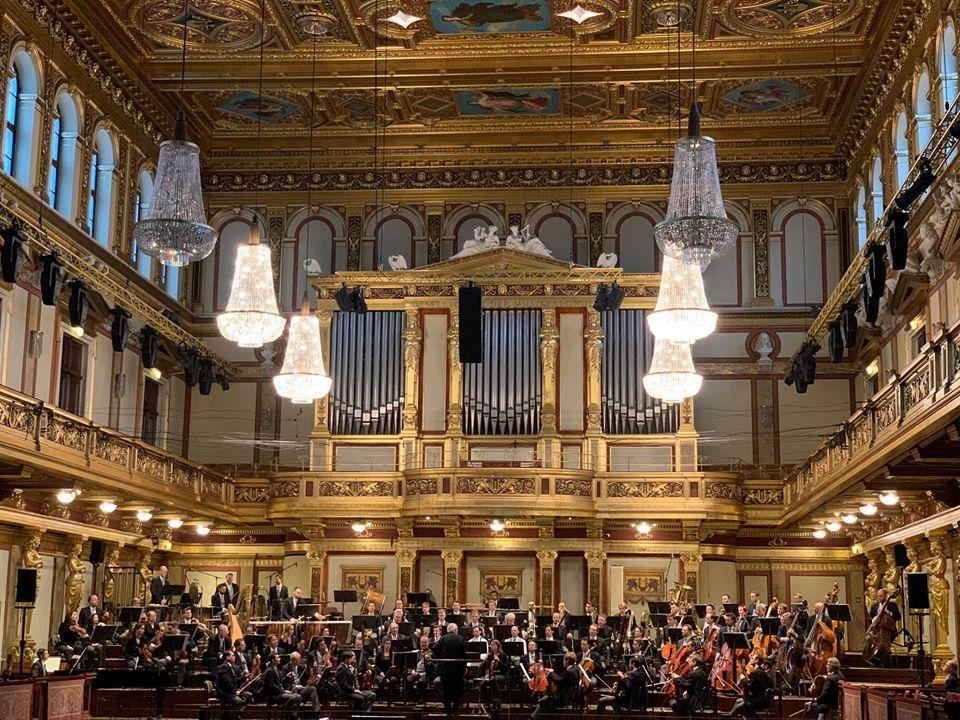
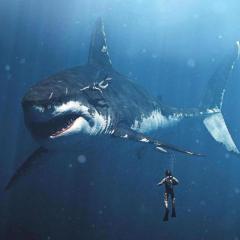

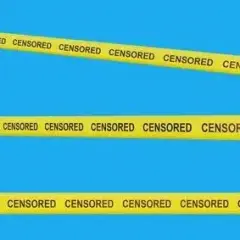
.thumb.png.99648892217b423e18fe027415380d39.png)
